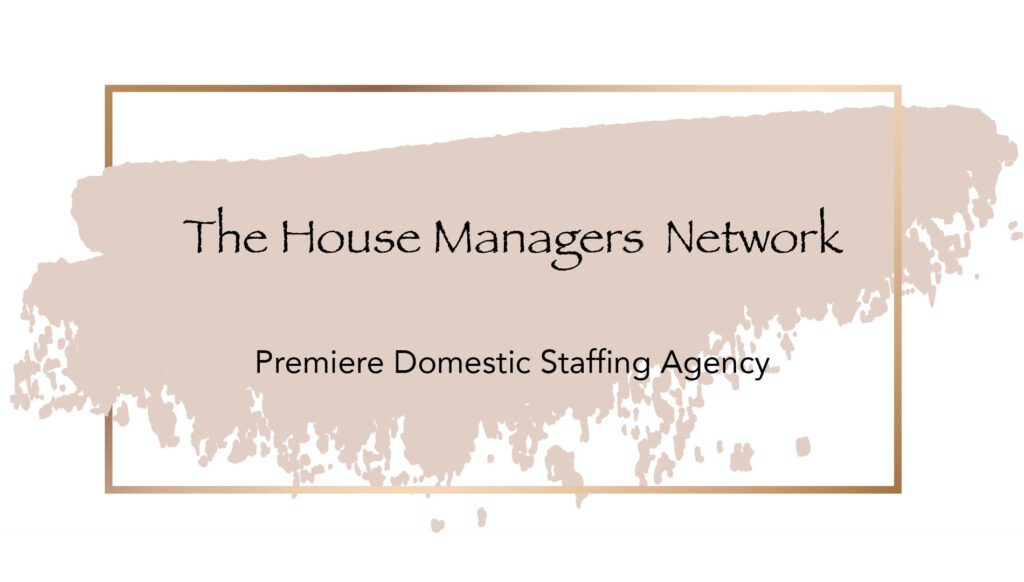
Transitioning from a nanny or housekeeper to a household manager role in the private domestic sector requires careful consideration of transferable skills and active pursuit of new competencies. Nannies and housekeepers possess valuable organizational skills gained from managing schedules and household tasks, which can seamlessly translate into overseeing household operations as a manager. Moreover, their experience in effective communication, while interacting with children, family members, and other domestic staff, will prove essential in liaising with employers, vendors, and service providers as a household manager.
Budget management is another skill honed by housekeepers when handling household expenses, purchasing supplies, and managing budgets, making it a vital asset for household managers in managing larger budgets and implementing cost-saving measures. Furthermore, problem-solving abilities developed through addressing various challenges in their roles equip nannies and housekeepers to tackle unexpected situations and efficiently resolve household-related issues as household managers. Additionally, supervisory skills acquired from overseeing children or managing household tasks are readily transferable to the role of a household manager, which often involves overseeing other staff members.
To complement their existing skill set, aspiring household managers can explore diverse learning opportunities. Formal education, such as pursuing degrees in household management, business administration, hospitality management, or human resources, can significantly enhance their qualifications and knowledge. Online courses and workshops provide accessible options for developing essential skills like leadership, budgeting, event planning, and staff management. Engaging with professional associations related to household management can offer valuable resources, networking opportunities, and exposure to industry-specific conferences and seminars. On-the-job training, gained through working as a household manager assistant or part-time manager alongside experienced professionals, allows individuals to gain practical insights and hands-on experience in the role. Self-study and research, including reading literature, books, and articles on household management, can also deepen their understanding and expertise in the field.
In conclusion, transitioning from a nanny or housekeeper to a household manager involves identifying transferable skills and actively pursuing new competencies relevant to the broader responsibilities of the role. By recognizing the value of organizational, communication, budget management, problem-solving, and supervisory skills, individuals can leverage their existing experiences as a strong foundation. Additionally, exploring various learning opportunities, such as formal education, online courses, workshops, professional associations, on-the-job training, and self-study, will enable them to confidently embrace the challenges and responsibilities of a household manager in the private domestic sector.
Domestic Dynamo: Unleashing the Power of Transferable Skills from Nanny or Housekeeper to Household Manager
Housekeepers and nannies possess a diverse skill set that seamlessly transfers to a household manager role, equipping them to excel in this broader position. First, their organizational prowess, developed through managing schedules and household tasks, enables them to efficiently coordinate various aspects of household operations. Effective communication skills, honed while interacting with children, family members, and other domestic staff, allow them to liaise with employers, vendors, and service providers as household managers. Budget management expertise, acquired from handling household finances, purchasing supplies, and managing expenses, translates into skillful management of larger budgets and implementing cost-saving strategies in their new role. Additionally, their problem-solving abilities, honed by addressing diverse challenges in their previous roles, prove invaluable when handling unexpected situations and resolving household-related issues as household managers.
Their supervisory experience, acquired while overseeing children or managing household tasks, equips them to efficiently manage and guide other staff members in their pursuit of a well-run household. Furthermore, their attention to detail, adaptability, time management, and multitasking skills enable them to seamlessly juggle various responsibilities and ensure the smooth functioning of the household. Moreover, their trustworthiness and ability to maintain confidentiality allow them to handle sensitive information and matters discreetly as household managers.
Lastly, their customer service skills, developed through interaction with families and guests, enable them to create a welcoming and hospitable environment within the household. These ten transferable skills collectively empower housekeepers and nannies to thrive in their transition to becoming proficient household managers in the private domestic sector.

Training to Enhance Qualifications and Skills
Housekeepers and nannies aspiring to secure a household manager role can benefit from various training opportunities to enhance their qualifications and skills. Below are some training options they can consider:
Household Management Courses: Enroll in formal household management courses that cover topics such as budgeting, staff management, event planning, and household operations. These courses are designed to provide comprehensive knowledge and practical skills required for a household manager position.
Business Administration Courses: Pursuing courses in business administration can equip individuals with essential skills like leadership, communication, and project management, which are valuable in overseeing household operations.
Hospitality Management Training: Hospitality management courses focus on customer service, event coordination, and guest relations, which are beneficial for household managers in managing family events and interactions with guests.
Financial Management Courses: Training in financial management provides skills in budgeting, expense tracking, and financial planning, enabling individuals to effectively manage household budgets and finances.
Communication and Leadership Workshops: Participate in workshops that emphasize effective communication, conflict resolution, and leadership skills, as these qualities are essential for household managers to interact with employers, staff, and service providers.
Human Resources Training: Taking courses or workshops in human resources provides insights into staff recruitment, training, and employee relations, essential for managing household staff.
Event Planning and Organization Workshops: Developing expertise in event planning and organization prepares individuals for coordinating family events, parties, and special occasions as part of their household manager role.
Culinary Courses: Acquiring culinary skills through cooking classes or workshops enhances a household manager’s ability to plan menus, cater to dietary preferences, and oversee meal preparation.
First Aid and CPR Certification: Obtaining first aid and CPR certification is crucial for a household manager, ensuring they are prepared to handle emergencies involving family members or household staff.
Professional Development Programs: Seek out professional development programs offered by associations or organizations that cater to household managers. These programs often cover industry-specific topics and provide networking opportunities.
On-the-Job Training: Gaining experience through on-the-job training or internships with experienced household managers allows individuals to learn practical skills and understand the nuances of the role.
Self-Study and Reading: Engage in self-study by reading books, articles, and publications related to household management, leadership, and domestic operations to expand knowledge and expertise.
- Housekeepers and nannies aspiring to secure a household manager role can benefit from various training opportunities to enhance their qualifications and skills. To complement their existing skill set, aspiring household managers can explore diverse learning opportunities. Formal education, such as pursuing degrees in household management, business administration, hospitality management, or human resources, can significantly enhance their qualifications and knowledge. Online courses and workshops provide accessible options for developing essential skills like leadership, budgeting, event planning, and staff management. Engaging with professional associations related to household management can offer valuable resources, networking opportunities, and exposure to industry-specific conferences and seminars. On-the-job training, gained through working as a household manager assistant or part-time manager alongside experienced professionals, allows individuals to gain practical insights and hands-on experience in the role. Self-study and research, including reading literature, books, and articles on household management, can also deepen their understanding and expertise in the field.
- In conclusion, transitioning from a nanny or housekeeper to a household manager involves identifying transferable skills and actively pursuing new competencies relevant to the broader responsibilities of the role. By recognizing the value of organizational, communication, budget management, problem-solving, and supervisory skills, individuals can leverage their existing experiences as a strong foundation. Additionally, exploring various learning opportunities, such as formal education, online courses, workshops, professional associations, on-the-job training, and self-study, will enable them to confidently embrace the challenges and responsibilities of a household manager in the private domestic sector.

